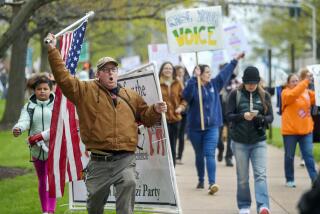Younger doctors not as pro-vaccine as older docs
At a time when enthusiasm for vaccination is waning among parents in the United States, a new study shows younger doctors are less likely than their older peers to be staunch believers in the effectiveness and safety of vaccines.
The study, presented Thursday at the annual meeting of the Infectious Diseases Society of America in Boston, was comprised of survey data from 551 doctors. Recent graduates from medical school were 15% less likely to believe vaccines are effective compared to older doctors. The research suggests that younger doctors have a different view of the risk-versus-benefit profile of vaccines. The doctors were surveyed at about childhood vaccines such as polio, measles, mumps, rubella and varicella.
It could be that some younger doctors are less enthusiastic about vaccination because they belong to a generation of people who grew up with vaccinations and never experienced diseases like measles and chicken pox, much less polio, the researchers suggested.
In another vaccine study presented at the meeting, 909 pediatricians from the Midwest were polled on how parents feel about childhood vaccine recommendations. The study found that parents are most likely to refuse or postpone the measles-mumps-rubella vaccine, the HPV vaccine (which protects against some strains of the virus that causes cervical cancer) and the flu vaccine.
The top three reasons parents deferred were fear of autism, too many shots and fears of serious side effects. Almost all of the doctors said they tried to educate parents and discuss their fears when the parent delayed or refused a vaccine for their child. The belief that vaccines can cause autism has been long discredited by scientific research.
Perhaps most surprising, 21% of the doctors said they had dropped families from their practice for continuing to refuse vaccination. In Iowa, 38% of doctors said they had done so.
Return to Booster Shots blog.
Follow me: twitter.com/LATShariRoan






